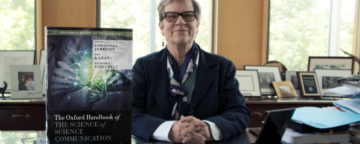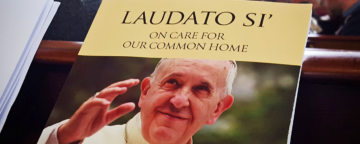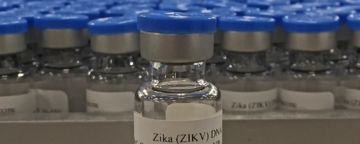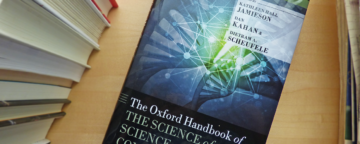In an article for the journal Politics and the Life Sciences, Kathleen Hall Jamieson looks at the role that language plays when science is conveyed to the public. Examples include the outbreak of "mad cow" disease in Britain.


In an article for the journal Politics and the Life Sciences, Kathleen Hall Jamieson looks at the role that language plays when science is conveyed to the public. Examples include the outbreak of "mad cow" disease in Britain.

Gene editing, vaccinations, climate change: All are science issues enmeshed in political controversy. How should scientists try to convey the best available evidence? The editors of the Oxford Handbook of the Science of Science Communication discuss the field.

In a commentary in Nature Climate Change, two recent APPC postdocs say the encyclical stressed moral values that appeal to liberals but not the three values -- sanctity, authority and loyalty -- that resonate with conservatives.

How can the public’s confidence in science be strengthened? A new study finding that public confidence in science spiked following coverage of the Zika vaccine trial in 2016 suggests a way to improve trust in science on a more sustained basis.

A study of the Pope's encyclical on climate change conducted by researchers at the Annenberg Public Policy Center has been featured as a "research highlight" by the journal Nature Climate Change.

Oxford has published The Handbook of the Science of Science Communication, the first in a series overseen by the Annenberg Public Policy Center's Science of Science Communication program.

In a new report, a group of leading scientists, academics and editors of scientific journals call for greater transparency and uniformity in the way author contributions are presented in science studies.